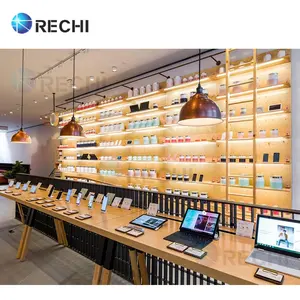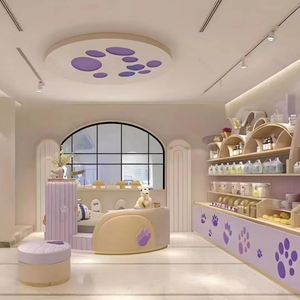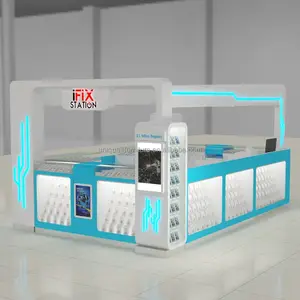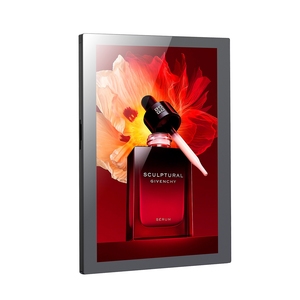Smart Retail Examples

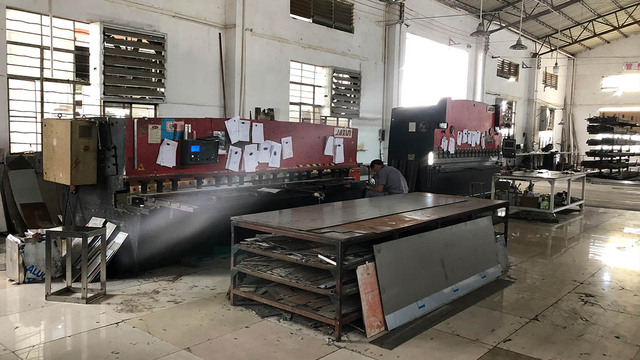


 1/14
1/14


























 1/22
1/22








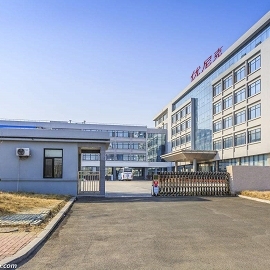








 1/27
1/27




 1/21
1/21






 1/52
1/52
About smart retail examples
Where to Find Smart Retail Solution Suppliers?
China remains the central hub for smart retail hardware manufacturing, with key supplier clusters concentrated in Guangdong, Zhejiang, and Fujian provinces. Shenzhen, a recognized technology innovation center, hosts advanced electronics integrators specializing in AI-powered retail kiosks, self-service terminals, and intelligent display systems. Hangzhou and Quzhou contribute specialized expertise in automated vending infrastructure and plastic point-of-sale displays, leveraging regional strengths in IoT development and injection molding.
These industrial ecosystems support vertically integrated production—from PCB assembly and sensor integration to cabinet fabrication and software deployment—enabling rapid prototyping and scalable output. Buyers benefit from proximity to component suppliers, logistics networks, and technical talent pools, reducing time-to-market by 20–35% compared to offshore alternatives. Average lead times range from 15–30 days for standard configurations, with customization cycles extending to 45 days depending on system complexity. Localized supply chains typically reduce unit costs by 15–25%, particularly for high-volume orders of digital signage, smart cabinets, or AI-enabled checkout solutions.
How to Choose Smart Retail Equipment Suppliers?
Effective supplier evaluation requires systematic verification across technical, operational, and transactional dimensions:
Technical & Functional Compliance
Confirm adherence to relevant international standards including CE, FCC, and RoHS for electronic safety and environmental compliance. For AI-driven systems (e.g., cashierless stores or facial recognition dispensers), request documentation on algorithm accuracy, data encryption protocols, and cloud integration capabilities. Validate hardware specifications such as touchscreen responsiveness, sensor density, and thermal management under continuous operation.
Production and Customization Capacity
Assess core manufacturing infrastructure through these indicators:
- Minimum facility size of 2,000m² for dedicated smart retail production lines
- In-house engineering teams capable of UI/UX design, firmware development, and structural modeling
- Prototyping capability within 7–14 days for custom display or kiosk designs
Cross-reference on-time delivery performance (target ≥95%) and reorder rates to gauge reliability and client satisfaction.
Procurement Safeguards
Utilize secure payment mechanisms such as escrow services until product acceptance. Prioritize suppliers with verifiable online revenue histories and responsive communication (target response time ≤4 hours). Conduct pre-shipment inspections or video audits to verify build quality, especially for AI vending machines or all-in-one retail terminals priced above $1,000 per unit. Sample testing is critical—evaluate uptime, network stability, and user interface intuitiveness before scaling procurement.
What Are the Leading Smart Retail Equipment Suppliers?
| Company Name | Main Products | Price Range (USD) | Min. Order Quantity | On-Time Delivery | Avg. Response Time | Reorder Rate | Online Revenue |
|---|---|---|---|---|---|---|---|
| LIANYI DISPLAY PRODUCTS CO., LIMITED | Smart store displays, LED rotating racks, 3C digital showcases | $100–900 | 2–5 sets | 100% | ≤2h | <15% | $8,000+ |
| Shenzhen Shiningworth Technology Co., Ltd. | Self-service kiosks, POS systems, AI retail displays | $35–52 | 100 pieces | 100% | ≤4h | Not available | Not available |
| Quzhou Smart Plastics Ltd. | Plastic floor displays, patented energy drink racks, POS units | $6.50–65 | 100 sets | 100% | ≤7h | <15% | $4,000+ |
| Shenzhen Ecrown Exhibition Co., Ltd. | Custom smart shelves, commercial store interiors, electronic displays | $180–1,800 | 2–2 sets | 100% | ≤4h | 20% | $20,000+ |
| Hangzhou Feishi Technology Co., Ltd. | AI vending machines, smart fridges, cashless retail units | $280–2,600 | 1 set | 33% | ≤2h | <15% | $180,000+ |
Performance Analysis
Suppliers like LIANYI DISPLAY and Shenzhen Shiningworth demonstrate strong delivery consistency (100% on-time rate) and competitive pricing, making them suitable for mid-volume procurement of display systems and digital kiosks. Shenzhen Ecrown stands out with a higher reorder rate (20%) and substantial online revenue, indicating customer retention and market trust in its custom smart store solutions. Hangzhou Feishi offers high-end AI vending systems but shows lower on-time delivery performance (33%), suggesting potential logistical or production bottlenecks despite significant sales volume. Buyers seeking low-MOQ access should consider Quzhou Smart Plastics for cost-effective plastic displays, while those requiring full-scale smart store integration may prioritize Shenzhen-based firms with end-to-end design and hardware capabilities.
FAQs
How to verify smart retail supplier credibility?
Cross-check certifications (CE, FCC, ISO) with issuing bodies and request test reports for electrical safety and EMC compliance. Analyze customer reviews focusing on software stability, after-sales technical support, and hardware durability under real-world retail conditions.
What is the typical sampling timeline for smart retail products?
Standard samples take 7–15 days for display racks and digital signage. AI-integrated units (e.g., smart fridges or sensing kiosks) require 20–35 days due to firmware configuration and sensor calibration. Air shipping adds 5–10 days internationally.
Can suppliers accommodate custom smart retail designs?
Yes, most leading suppliers offer OEM/ODM services. Provide detailed CAD files, UI mockups, and functional requirements. Reputable manufacturers deliver 3D renderings within 72 hours and working prototypes within 3–5 weeks.
Do suppliers provide software integration support?
Top-tier suppliers offer API access for inventory management, payment gateways, and CRM integration. Confirm compatibility with major platforms (e.g., Shopify, Square, Alibaba Cloud) and whether SDKs or remote diagnostics are included.
Are there options for low MOQ or dropshipping?
Some suppliers accept orders as low as 1–2 units for high-value items like AI vending machines. However, MOQs of 100 units are common for mass-produced displays. Dropshipping is limited; most transactions are B2B with FOB or EXW terms.








































